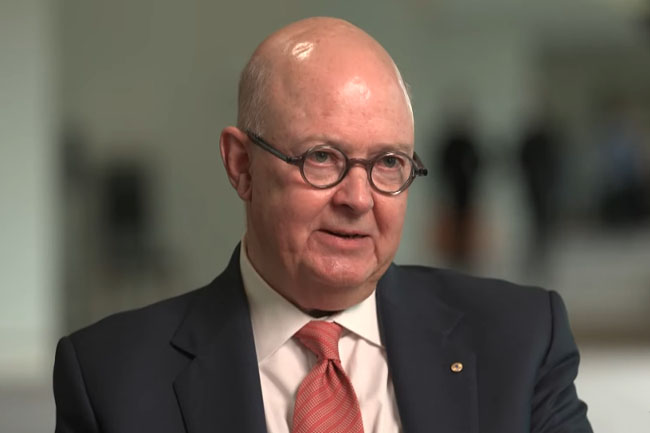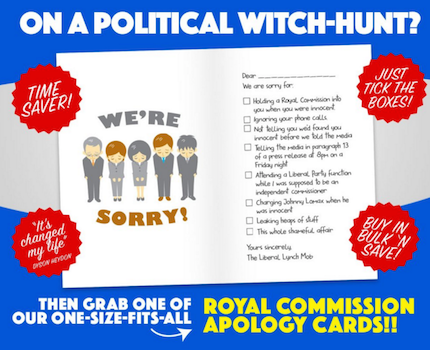IN THE EARLY 1960s, I knew a journalist named Lyle Cousland, who was editor-in-chief of a West Melbourne magazine publishing company named Southdown Press, owned by the Murdoch family.
When Keith Murdoch died, Rupert Murdoch succeeded him and sold Southdown Press to finance his purchase of News of the World in Britain. Last year, he closed the much more profitable News of the World in his effort to save his reputation over the phone hacking scandal and the Leveson inquiry.
In both transactions, he had sold two companies that provided substantial financial returns to his family and his shareholders. He could do that because his name was Rupert Murdoch and he wanted so much to be an important figure in the world of newspapers.
Lyle Cousland, meanwhile, had become a sub-editor on The Australian and then was appointed secretary of the Australian Press Council. When I came across him in Sydney one day and we had a beer, he told me his new job was the best he had ever had. Why? Well, he had a good salary and nothing to do!
The Australian Press Council was a newspaper industry joke throughout most of its early existence. Financed and operated by all the Australian newspaper companies, both metropolitan and rural newspapers, it dealt with complaints from readers in such a way that complainants eventually gave up.
That was the Press Council in the Australia of the 1960s and the newspapers got away with it because they had power. But even power had its limitations and the proprietors hired editors who understood the limitations far better than the proprietors.
As an editor for 30 years, Rupert Murdoch’s father knew how far he could go. He was anti-Labor and he dealt frequently with politicians like Billy Hughes and Robert Menzies. His private correspondence in the National Library are a revelation into how he learned to smoothly deal with prime ministers and their complaints. But Keith Murdoch also recognised the limitations.
When Rupert Murdoch bounced back from his lazy time at Oxford University with a third class degree, he determined to reclaim the legacy his father had left him, but he was not welcome at his father’s old company. He entered the industry with an understanding of the power of the press, but no understanding at all of its limitations.
That is why he got himself into so much trouble in England and why he is getting into deeper trouble in the USA, and why the Australian people have become fed-up with the distorted coverage and the idiotic headlines and the lies and the confusion — not only in this election but in every election since the birth of The Australian in 1962.
The British people have demanded better of their press. The Americans are irritated with Fox News. How can Australians fight back? One way, I guess is through the polling booth — that one tiny box that lets each of us have a say. Perhaps it is the only way?
A new Australian Press Council was formed in 1976. In 37 years, the new Press Council has adjudicated on 1563 complaints, but its activities have been less than effective in the current electoral climate.
More effective was the law when applied by the chief justice of the Family Court, who took one matter of news reporting direct to the Australian Federal Police. They began a particularly significant investigation in May last year which resulted in the Murdoch-owned Courier-Mail in Brisbane pleading guilty to a charge under the Family Law Act.
The case involved four Italian sisters caught up in a custody battle between their father and mother. The Courier-Mail sensationalised the case in a manner similar to Rupert Murdoch’s British tabloids — where truth and personal privacy are thrown out the window and replaced by smart headlines and sensationalism and the real truth about the case becomes buried.
Photographs of the children were published on the front page of the paper on two successive days and their names were used — acts forbidden under Family Law, where personal privacy is considered sacred.
When charged, the paper said it would defend the matter. But their legal counsel told them there was no defence.
Last week, a barrister representing News Limited’s Queensland Newspapers subsidiary company told the Family Law court’s chief justice that the company would plead guilty on four counts of breaches of the law.
This is little less than a mild rap on the knuckles for the paper. But it does show once again how easy it is to turn facts into fiction.
The Press Council has been swamped with complaints over the reporting published in the current election, but its chairman, Julian Disney, has been unable, under his charter, to do more than write a letter to the editors of the major papers.
He has politely asked them to distinguish news from opinion and to present the community with a comprehensive account of issues.
The papers have, of course, treated the request with utter disdain — ignoring it entirely
Prime Minister Rudd has complained that the Daily Telegraph published 40 articles critical of the Labor government in the first week of the campaign.
Tony Abbott has never complained about the Murdoch press.
The concept of control of the press is abhorrent in our society. But so is the concept of a corrupt press. It may be a “free press” but so why do we pay for it?
Read also managing editor David Donovan's investigative exposé on the Australian Press Council here.
This work is licensed under a Creative Commons Attribution-NonCommercial-NoDerivs 3.0 Australia License









